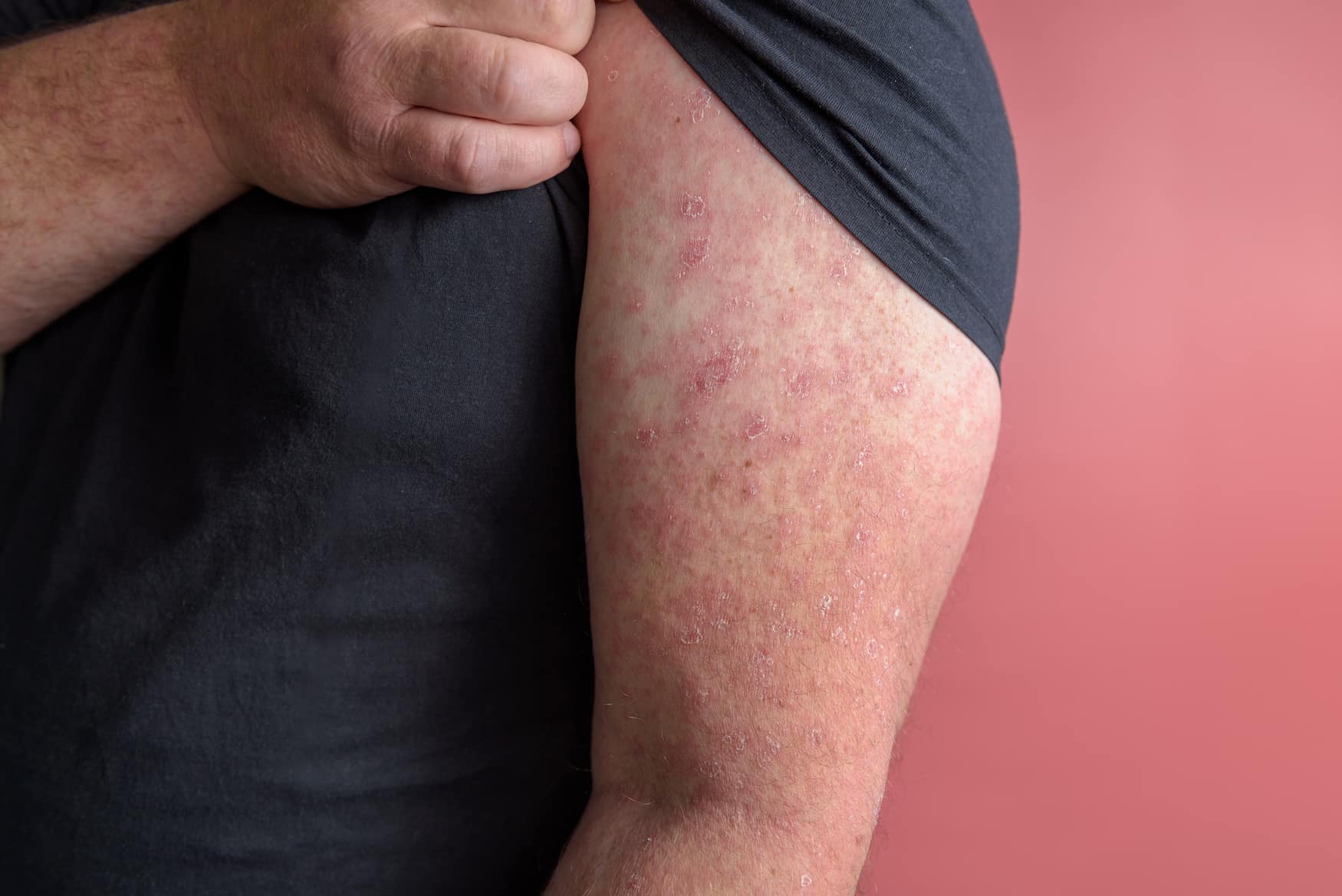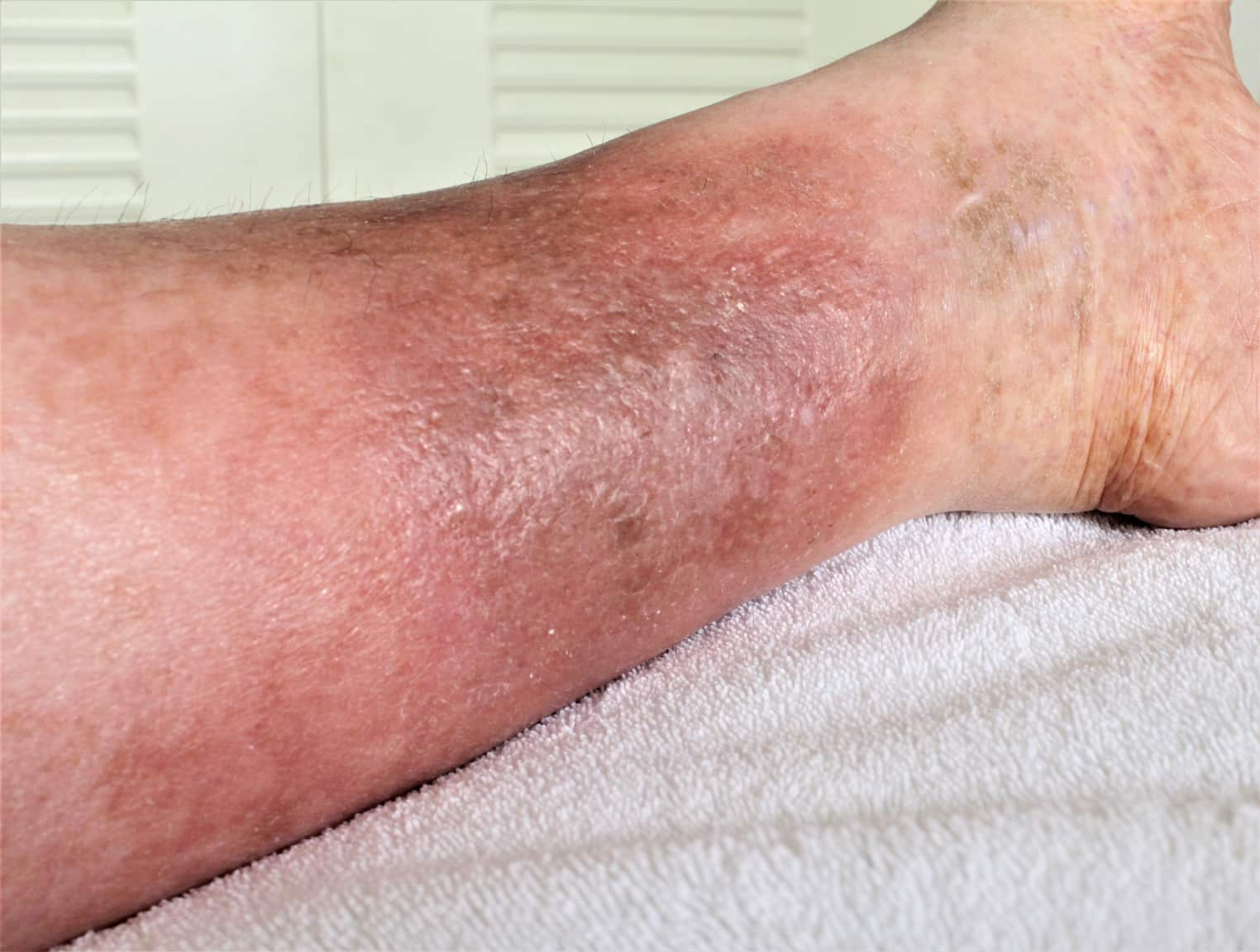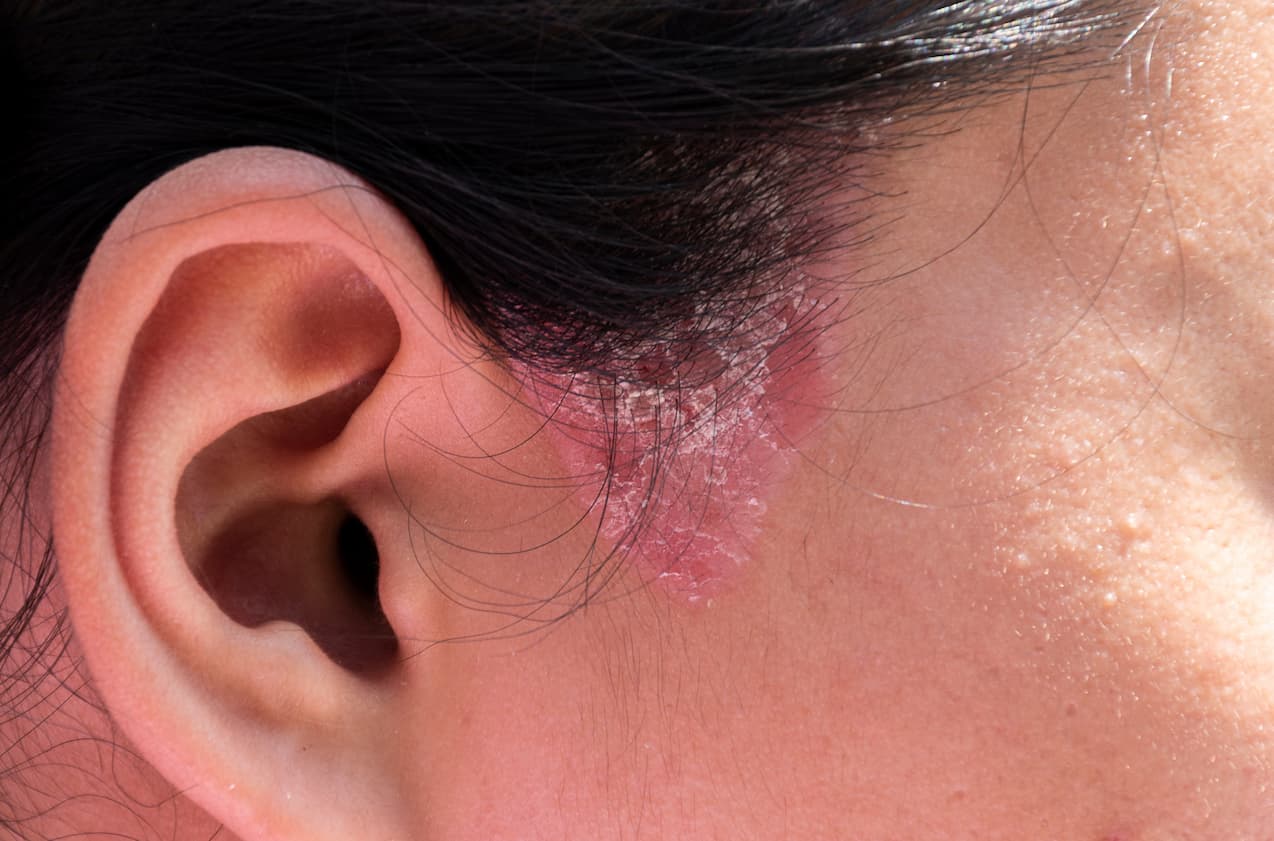Erysipelas Treatment in Turkey
Healthy Türkiye helps you find the best erysipelas treatment in Turkey at affordable prices and adopts a 360-degree service approach in all areas of health through affiliated hospitals.
- Homepage
- Medical Treatment
- Erysipelas Treatment in Turkey

About Erysipelas Treatment in Turkey
Erysipelas treatment in Turkey is for a frequent bacterial skin illness. It affects the top dermis (the skin’s upper layer) and the lymphatic veins within the skin. The condition begins with skin breakdown, followed by bacterial invasion. Erysipelas face develops when bacteria cause sensitive, bright red rashes on the skin of the face. Erysipelas infections are most common on the face and legs, but they can develop anywhere on the skin. Although erysipelas is a common bacterial infection that tends to reoccur, if left untreated, it can be fatal.
Erysipelas is treatable. It is critical to begin therapy as soon as possible to avoid further difficulties. Antibiotics are used to treat erysipelas. The particular type will vary depending on the bacteria causing the problem, but it will almost always contain penicillin. Anyone who is allergic to penicillin should notify their doctor before beginning therapy so that alternate drugs, such as erythromycin or cephalexin, can be prescribed. Antibiotics are commonly taken orally for 7 to 14 days in patients with erysipelas. In more severe cases, the medications will be injected into the skin through a drip.
If the person is concerned about recurrence episodes, it is critical that they consult their doctor as soon as possible. If other illnesses, such as eczema, athlete’s foot, or diabetes, contributed to the attack, treating those conditions appropriately will help avoid future outbreaks of erysipelas. Treating skin breaks as soon as possible can also assist. Similarly, if being overweight or having poor circulation contributed to the infection’s development, a change in lifestyle and food can often help reduce the likelihood of erysipelas recurring.

Erysipelas Treatment Procedure in Turkey
Erysipelas in Turkey is focused on a type of skin infection. It is a type of cellulitis, however, unlike cellulitis, which affects deeper tissue, erysipelas primarily affects the skin’s surface layers. However, the two illnesses might overlap, making it difficult for a doctor to distinguish between them. Previously, doctors believed that erysipelas primarily afflicted the face, but the researches estimate that roughly 80% of all cases involve the legs. It can also be seen on the arms and the torso.
Erysipelas is a bacterial skin illness that often affects the top dermis and extends into the superficial cutaneous lymphatics. It is a painful, erythematous, indurated plaque with a well-defined border. Its well-defined edge can aid in distinguishing it from other skin infections (eg, cellulitis).
Erysipelas is treatable. Fever and illness linked with erysipelas usually go away within a few days of commencing treatment, but the skin infection can take weeks to clear up. There are no scars. Approximately one-third of patients who receive erysipelas treatment relapse. When this occurs, a long-term drug regimen can be provided to address it.
Erysipelas is a mild type of cellulitis, a potentially fatal bacterial infection of the skin. Erysipelas is a skin infection that begins in the upper dermis and spreads to the superficial cutaneous lymphatics. While general disease symptoms usually resolve within a day or two, skin abnormalities can take weeks to resolve fully. There is no scarring. Recurrent erysipelas attacks frequently necessitate long-term penicillin treatment. Erysipelas treatment in Turkey recurs in up to one-third of patients due to the persistence of risk factors, as well as because erysipelas can produce lymphatic injury (therefore reduced toxin drainage) in the affected skin, predisposing to subsequent outbreaks. If individuals have recurring attacks, long-term penicillin preventative therapy may be explored.

We Care About Your Health
Healthy Türkiye provides the best for your health and comfort. You will feel privileged with us.
7/24 Quality Personal Assistance Throughout Your Journey
Customizable for You All-Inclusive Packages
Get the Right Advice for your Health
How Is Erysipelas Treatment Performed in Turkey?
If your doctor identifies erysipelas, you will be given oral antibiotics (taken by mouth). If the condition is serious, they may advise intravenous (through vein) antibiotics. The following antibiotics are used to treat erysipelas:
Oral therapy: penicillin
Intravenous penicillin
Vancomycin for facial erysipelas caused by MRSA
Alternative to penicillin: erythromycin (for people allergic to penicillin)
If you get the illness again, your doctor will prescribe you long-term medications to prevent future infections. Antiallergic medicines, mineral complexes, and vitamins are occasionally added to antibiotics to improve their efficiency. General treatment of erysipelas includes:
Applying cold packs to relieve discomfort
Elevating your legs to reduce swelling
Dressing the wound
Physical therapy is also recommended by doctors in the final stages of recuperation for Erysipelas treatment in Turkey. People suffering from erysipelas should also rest in bed with their legs raised. If the patient displays signs of recurrence, doctors may prescribe antibiotic therapy for an extended period of time. The duration of treatment will be determined by the severity of the infection.
Causes of Erysipelas
Erysipelas is caused by a strain of group A Streptococcus bacterium (“strep”). This illness affects both children and adults. Although it can affect anyone of any age, people with the following conditions are at a higher risk of developing erysipelas:
Diabetes
Pregnancy
Obesity
This illness causes a red, raised, and painful skin rash, as well as symptoms such as fever, chills, and weariness. Erysipelas can be caused by a number of factors, including a compromised immune system, skin injuries, and contact to contaminated sources such as contaminated water or soil.
Obesity, poor hygiene, and underlying medical issues such as diabetes or circulatory problems can all raise the risk of having Erysipelas. It is also more likely among those who have previously had a similar infection, as well as those who have just had surgery or are on dialysis. If you suspect you have Erysipelas, seek medical assistance right once because it can lead to significant problems if left untreated.
Symptoms of Erysipelas Treatment
Erysipelas creates elevated skin rashes. Toxins produced by the bacteria contribute to skin irritation. The legs, face, and arms are the most commonly infected areas. Other common erysipelas symptoms besides skin rashes include:
Fevers
Chills
Shivering
People suffering with erysipelas will see red, puffy areas on their skin. Blisters and sores are also formed as a result of the illness (erysipelas lesions). Redness and painful skin lesions with elevated borders will appear if the infection spreads to other places of the skin.
Diagnosis for Erysipelas Treatment in Turkey
In general, erysipelas can be diagnosed by the look and symptoms of the affected area. This is due to the fact that the symptoms of erysipelas are unique to this ailment. The person’s medical history, which includes previous injuries or surgery, will frequently point to a possible cause as well. Additional testing is rarely required.
If there is any evidence of systemic infection, such as germs in the blood, doctors may do a blood test (bacteremia). However, even in a laboratory, identifying bacteria is not always possible. Tests can also assist in determining:
Increased white blood cell count, which can be caused by tissue injury or bacterial infection
C-reactive protein levels are elevated, as the liver produces more of it when there is inflammation.
Positive blood culture indicating a bacterial infection
The presence of a specific infection, such as one caused by an animal bite,
A magnetic resonance imaging (MRI) or computed tomography, CT scan, may be required in some situations with deep infection. In Turkey, Erysipelas therapy often begins with a physical examination by a doctor. The doctor may examine the affected area for redness, swelling, and warmth, which are frequent Erysipelas symptoms. A sample of fluid from the affected area may also be taken by the doctor to test for germs and confirm the diagnosis. The doctor will select the best course of treatment once the diagnosis has been confirmed. Antibiotics, pain medications, and wound care are common Erysipelas therapies. Hospitalization may be required in severe cases to control the infection and prevent it from spreading to other parts of the body. Patients are recommended to follow treatment guidelines and follow-up consultations to promote adequate healing and prevent infection recurrence.

2026 Cost of Erysipelas Treatment in Turkey
All types of medical attention like erysipelas treatment are very affordable in Turkey. Many factors are also included in determining the cost of erysipelas treatment in Turkey. Your process with Healthy Türkiye will last from the time you decide to have a erysipelas treatment in Turkey until the time you are fully recovered, even if you are back home. The exact cost of a erysipelas treatment procedure in Turkey depends on the type of operation involved.
The cost of erysipelas treatment in Turkey does not demonstrate many variations in 2026. Compared to costs in developed countries like the United States or the UK, erysipelas treatment costs in Turkey are relatively low. So, it’s no wonder patients from across the world visit Turkey for erysipelas treatment procedures. However, price is not the only factor affecting choices. We suggest looking for hospitals that are safe and have erysipelas treatment reviews on Google. When people decide to seek medical help for erysipelas treatment, they will not only have had low-cost procedures in Turkey, but also the safest and best treatment.
At clinics or hospitals contracted with Healthy Türkiye, patients will receive the best erysipelas treatment from specialist doctors in Turkey at affordable rates. Healthy Türkiye teams provide medical attention, erysipelas treatment procedures and high-quality to patients at a minimum cost. When you contact Healthy Türkiye assistants, you can get free information about the cost of erysipelas treatment in Turkey and what this cost covers.
Why Is Erysipelas Treatment Cheaper in Turkey?
One of the main considerations before traveling abroad for erysipelas treatment is the cost-effectiveness of the whole process. Many patients think that when they add flight tickets and hotel expenses to their erysipelas treatment costs, it will become very expensive to travel, which is not true. Contrary to popular belief, round-trip flight tickets to Turkey for erysipelas treatment can be booked very affordably. In this case, assuming you are staying in Turkey for your erysipelas treatment, your total travel expense of flight tickets and accommodation will only cost less than any other developed country, which is nothing compared to the amount that you are saving.
The question “Why is erysipelas treatment cheaper in Turkey?” is so common among patients or people simply curious about getting their medical procedure in Turkey. When it comes to erysipelas treatment prices in Turkey, there are 3 factors allowing for cheaper prices:
The currency exchange is favorable for anyone looking for erysipelas treatment who has a euro, dollar, or pound
The lower cost of living and cheaper overall medical expenses such as erysipelas treatment
For erysipelas treatment, incentives are given by the Turkish Government to medical clinics working with international clients
All these factors allow for cheaper erysipelas treatment prices, but let’s be clear, these prices are cheaper for people with strong currencies (as we said, the euro, dollar, Canadian dollar, pound, etc).
Every year, thousands of patients from all over the world come to Turkey to get erysipelas treatment. The success of the healthcare system has increased in recent years, especially for erysipelas treatment. It’s easy to find well-educated and English-speaking medical professionals in Turkey for all kinds of medical attention such as erysipelas treatment.
Why Choose Turkey for Erysipelas Treatment?
Turkey is a common choice among international patients seeking advanced erysipelas treatment. Turkey’s health procedures are safe and effective, with a high success rate, like erysipelas treatment. The increasing demand for high-quality erysipelas treatment at affordable prices has made Turkey a popular medical travel destination. In Turkey, erysipelas treatment is performed by highly experienced and trained doctors with the most advanced technology in the world. erysipelas treatment is done in Istanbul, Ankara, Antalya, and other major cities. The reasons for choosing erysipelas treatment in Turkey are as follows:
High-quality hospitals: Joint Commission International (JCI) accredited hospitals have dedicated erysipelas treatment units that are specially designed for patients. International and national strict protocols provide effective and successful erysipelas treatment for patients in Turkey.
Qualified experts: The expert teams include nurses and specialist doctors, together to carry out erysipelas treatment according to the patient’s needs. All the included doctors are highly experienced in performing erysipelas treatment.
Affordable price: The cost of erysipelas treatment in Turkey is affordable compared to Europe, the USA, the UK, Singapore, Australia, etc.
The high success rate: Highly experienced specialists, the best available technology, and stringently followed safety guidelines for post-operative care of the patient, resulting in a high success rate for erysipelas treatment in Turkey.
A recent clinical study conducted in Turkey investigated the efficacy of various antibiotics, including penicillin, erythromycin, and cephalexin, in the treatment of erysipelas. The research emphasized the importance of early intervention with oral antibiotics for 7 to 14 days, with intravenous administration reserved for more severe cases. Additionally, the study highlighted the need for a comprehensive approach, addressing underlying conditions such as eczema, athlete’s foot, or diabetes, to prevent the recurrence of erysipelas and underscored lifestyle modifications for individuals prone to the infection due to factors like being overweight or having poor circulation.
Is Erysipelas Treatment Safe in Turkey?
Did you know Turkey is one of the most visited destinations for erysipelas treatment in the world? It is ranked as one of the most popular tourist destinations for erysipelas treatment. Over the years it has also come to be a very popular medical tourism destination, with many tourists coming in for erysipelas treatment. There are so many reasons why Turkey stands out as a leading destination for erysipelas treatment. Because Turkey is both safe and easy to travel to, with a regional airport hub and flight connections to pretty much everywhere, it is preferred for erysipelas treatment.
The best hospitals in Turkey have experienced medical staff and specialists who have performed thousands of medical services such as erysipelas treatment. All procedures and coordination related to erysipelas treatment are controlled by the Ministry of Health in accordance with the law. Over many years, the greatest progress in medicine has been observed in the field of erysipelas treatment. Turkey is known among foreign patients for its great opportunities in the area of erysipelas treatment.
To emphasize, besides the price itself, the key factor in selecting a destination for erysipelas treatment is certainly the standard of medical services, the hospital staff’s high expertise, hospitality, and the safety of the country.
All-Inclusive Packages for Erysipelas Treatment in Turkey
Healthy Türkiye offers all-inclusive packages for erysipelas treatment in Turkey at much lower prices. Extremely professional and experienced doctors and technicians carry out the high quality erysipelas treatment. The cost of erysipelas treatment in European countries can be quite expensive, especially in the UK. Healthy Türkiye provides cheap all-inclusive packages for a long and short stay of erysipelas treatment in Turkey. Because of many factors, we can provide you with many opportunities for your erysipelas treatment in Turkey.
The price of erysipelas treatment differs from other countries due to medical fees, staff labor prices, exchange rates, and market competition. You can save much more in erysipelas treatment compared to other countries in Turkey. When you purchase erysipelas treatment all-inclusive package with Healthy Türkiye our healthcare team will present a list of hotels for you to choose from. In erysipelas treatment travel, you will have the price of your stay included in the all-inclusive package cost.
In Turkey, when you purchase erysipelas treatment all-inclusive packages through Healthy Türkiye, you will always receive VIP transfers. These are provided by Healthy Türkiye, which is contracted with highly qualified hospitals for erysipelas treatment in Turkey. Healthy Türkiye teams will organize everything about erysipelas treatment for you and have you picked up from the airport and safely brought to your accommodation. Once you are settled in the hotel, you will be transferred to and from the clinic or hospital for erysipelas treatment. After your erysipelas treatment has been successfully completed, the transfer team will return you to the airport in time for your flight home. In Turkey, all packages of erysipelas treatment can be arranged upon request, which relaxes the minds of our patients. You can reach out Healthy Türkiye for everything you need to know about erysipelas treatment in Turkey.
The Best Hospitals in Turkey for Erysipelas Treatment
The best hospitals in Turkey for erysipelas treatment are Healthy Türkiye, Memorial Hospital, Acıbadem International Hospital, and Medicalpark Hospital. These hospitals attract patients from all over the world seeking erysipelas treatment due to their affordable prices and high success rates.
Best Doctors and Surgeons in Turkey for Erysipelas Treatment
The best doctors and surgeons in Turkey for erysipelas treatment are highly skilled professionals who offer specialized care and advanced procedures. With their expertise and state-of-the-art techniques, these specialists ensure that patients receive high-quality erysipelas treatment and achieve optimal health results.

Frequently Asked Questions
Erysipelas is caused by germs entering the skin through cuts or sores. Cuts, ulcers, and bed sores are examples of skin injuries that enhance the risk of developing erysipelas. Bites by insects or animals.
Erysipelas can be dangerous, but it is rarely deadly. It responds quickly and favorably to antibiotics. Local complications outnumber systemic problems. Group A streptococci are the most common cause.
Cellulitis is a common skin infection caused by a bacterial infection that causes redness, discomfort, and lymphangitis. Up to 40% of persons suffer from systemic disease. Erysipelas is a type of cellulitis that causes severe superficial inflammation in the lower limbs and face.
Erysipelas is an infectious skin disease that commonly affects the elderly. It usually recurs, and the most likely risk factors for recurrence are surgery, obesity, diabetes mellitus, venous insufficiency, and lymphedema.
Oral penicillin or, in penicillin-allergic individuals, erythromycin should be used to treat erysipelas; in severe cases, parenteral penicillin or, in penicillin-allergic patients, ceftriaxone or cefazolin should be used.
